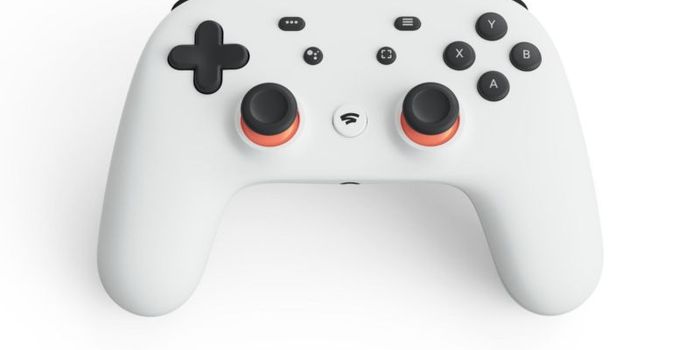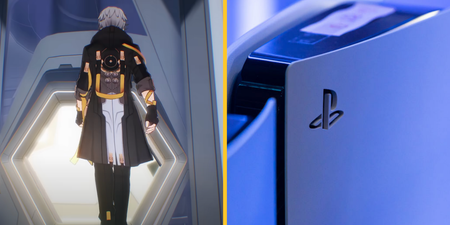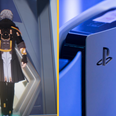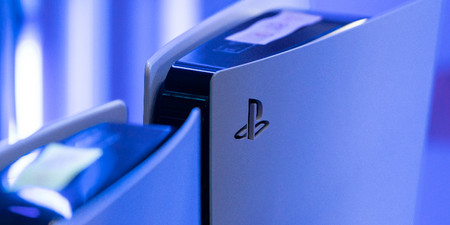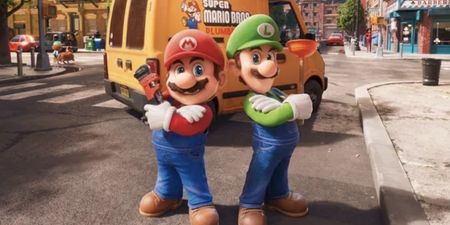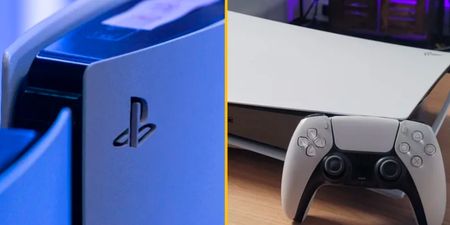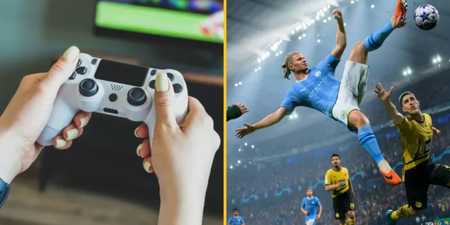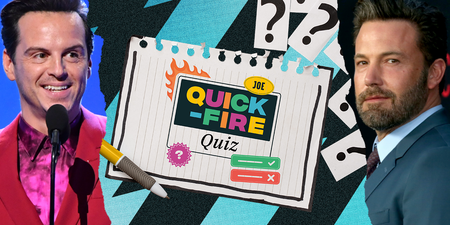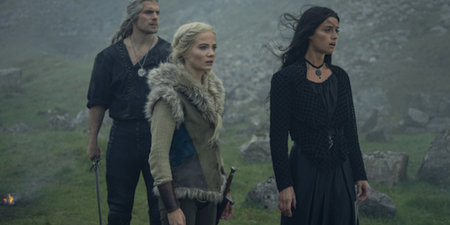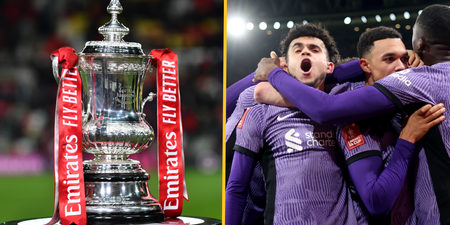We chatted to the head of games at Google about their brand new console.
For years, TV and cinema had everything pretty much sewn up in terms of showing movies and shows to the public.
Then along came Netflix and completely changed the game, quickly becoming one of the popular new formats of entertainment consumption, and now it looks like the gaming industry is about to have a similar revolution.
The Google Stadia has, in a sort of shorthand, been described as “Netflix for gamers”, as it provides you with access to all of the latest and greatest games, via streaming. However, gamers will still need to pay for individual games and will access the stream via Stadia, and can play it through any device that can access Google Chrome.
The early access gamers will get their hands on it this November, before it launches in 2020. Before it goes full steam ahead, JOE chatted with Jack Buser, the Director of Games at Google, to find out a little bit more about the Stadia and what he thinks it might mean for the future of gaming itself.
JOE: Are you excited about getting Stadia out there to the public?
Jack Buser: Absolutely! We are thrilled to bring our Stadia offering to gamers this November. We’ll be leveraging our heritage with cloud, AI, Play, search and YouTube, along with our data centres across the globe to deliver an amazing gaming experience the world has never seen before.
We have a strong game lineup with hits from the best game developers and publishers in the world and have already announced over 40 games from nearly 30 partners. Our launch in November will be the very beginning of our long and exciting journey together with gamers and we can’t wait to get started.
JOE: It does feel like a big departure from what gamers might be used to in terms of the status quo of either “console” gaming and “mobile” gaming. Did you sense much hesitancy when it was initially announced?
JB: We did a test in October 2018 called Project Stream, where we streamed Ubisoft’s hit game Assassin’s Creed Odyssey to gamers all over the United States. We wanted to make sure that the technology that would power Stadia was able to provide a great experience “in the wild” as well as in our laboratory. The feedback from this test was overwhelmingly positive, as gamers told us about the fidelity and responsiveness of the experience and the freedom they felt being able to play this game wherever they wanted.
We knew we had something very special following this test and moved forward with confidence to announce our full vision for Stadia soon thereafter.
JOE: The image of gaming and a “gamer” has changed rapidly in the last few years, with professional gamers now in line to make a lot of money. Is that rapidly evolving image and tastes of gamers something that Google and Stadia will need to keep in mind going forward?
JB: The game industry is a very exciting and dynamic place and rapidly evolves over time. The types of games that gamers enjoy today are very different than in years past and we can expect this evolution to progress well into the future.
We have built Stadia from the ground up to be a game platform for the 2020s and beyond and are not hindered by legacy technology from the past. It is designed to change and improve over time, allowing us to respond quickly to the needs and desires of gamers today as well as tomorrow. One of the best parts is that Stadia will evolve behind the scenes, so that we will never need to ask gamers to buy an expensive “next generation console.” Instead, games on Stadia will look and play better and better over time on the very same screen players are using today.
JOE: You gave an interview recently in which you mentioned you see a future of “thousands of players” simultaneously. Is the future geared more towards multiplayer gaming? Do you feel single-player games are getting phased out?
JB: Stadia is a powerful and flexible platform, equally capable of rendering beautiful immersive single-player experiences as well as massive, living breathing multiplayer worlds. The raw power of the technology behind Stadia will drive experiences that gamers have never seen before, as developers begin to create new game types with this exciting creative canvas we have created.
Regarding multiplayer specifically, Stadia has a key advantage as gamers will be connected together via Google’s proprietary network, with very high-bandwidth, stable, fibre-optic connections. Unlike a traditional game console in your home which may struggle to communicate reliably with other game consoles over the open internet, Stadia will connect gamers together with unprecedented reliability and scale. As an example of what is possible with this kind of network, imagine a battle royale game with many thousands of players, all on a single map at the same time.
JOE: In terms of in-game communication, will there be “party chat” support, or will it require a third party?
JB: Yes, Stadia supports platform parties with voice chat. This feature allows gamers to maintain their party chat while playing or switching games.
JOE: Are there plans for “community events” on the Stadia?
JB: Stadia is a game platform with a wide variety of games across nearly every genre. Many of these games have vibrant communities filled with events and new content to enjoy on a regular basis. Popular titles like Destiny 2 and The Elder Scrolls Online offer living, breathing worlds filled with ever-evolving content for the Stadia community to participate in on a regular basis.
JOE: For the controller, every console and gaming device must maintain originality in design, while also being easy to use and play with. How difficult was it to come up with that design for the Stadia controller?
JB: The design of the Stadia controller, which is unique in many ways, was very important for us to get right.
First and foremost, a game controller must feel good in the hands of the player and we spent many years fine-tuning the ergonomics, making it one of the best feeling and most flexible controllers ever created.
Inside, the controller is equally impressive. It actually connects directly via WiFi directly with Stadia games running in the cloud, creating a seamless connection directly to the Google data centre running your game. This frees your game experience from complex device pairing and setup, allowing you to move seamlessly to other screens with ease.
Finally, the Stadia Controller has buttons for both access to YouTube and the Google Assistant, allowing direct access to these powerful platforms, bringing the best of Google to the gameplay experience.
JOE: Can you also see the future of gaming being entirely digital? Or will there always be an audience for the physical ownership of games?
JB: A primary reason why we created Stadia is because we are passionate about bringing high-fidelity games to people who otherwise wouldn’t have access. Our long-term mission is to reach billions of gamers who can play the latest and greatest games on screens they already own. In order to achieve this, we are leveraging the best of Google technology to break down today’s barriers to gaming, such as the need to buy an expensive console or PC.
Digital technology from Google also enables the freedom to play across a wide variety of screens and devices, as well as providing new game experiences that traditional physical hardware could never reproduce.
Just like other physical formats such as vinyl records, there will always be a place in our hearts for these legacy mediums and the memories they bring. That said, our vision can only be made real by looking forward to the future of technology and all of the exciting possibilities that brings.
JOE: What can you tell us about Stadia exclusive games like Get Packed and/or Gylt?
JB: I’ve spent nearly four years travelling the world, helping the best game developers come to the Stadia Platform. We partner with game developers of all sizes with a wide variety of creative visions for what is possible. Occasionally, we will see a game that is so special we would like to bring it to our platform exclusively. Often times this is because the developer wants to focus their efforts and take full advantage of Stadia technology to reach more players than ever before, or perhaps realise a creative vision that otherwise would be impossible.
Both Gylt and Get Packed are very special games for us and we couldn’t be more excited to help bring them to market. As we grow over time, gamers can expect more exclusive experiences that only Stadia could bring to reality.
JOE: Do you have any insights into the Irish gaming market? Is it a particularly progressive one? Have there been many early adopters of the Stadia here?
JB: We’re proud to include Ireland in our very first wave of 14 launch countries and have already seen considerable success there. Recently we announced that we have sold out of our Stadia Founder’s Edition in most of Europe, with only a few units left in the UK, US, and Canada. This showcases the strong demand for our service in countries such as Ireland and we intend to make our founding customers proud when we have a strong launch in November.
All clips via Stadia
